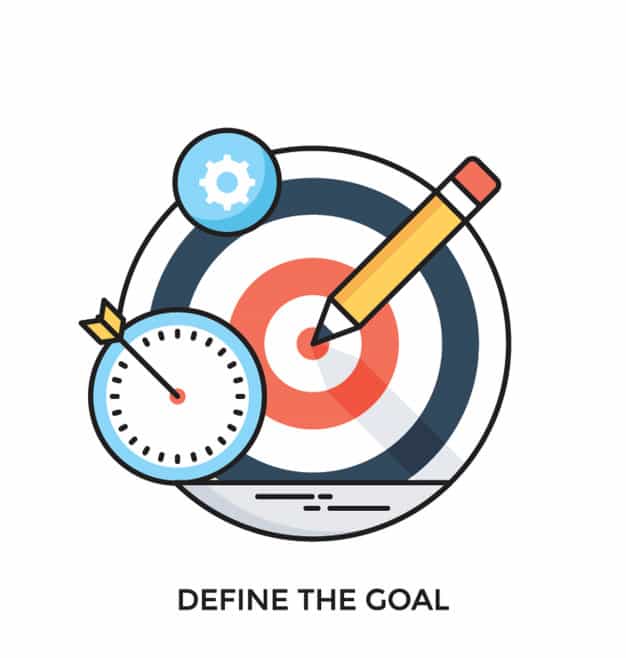Disclosure: Aussie Hosting is community run. We sometimes earn a commission when you buy hosting through our links. Learn More
Website Optimization: A Beginner's Guide
 With the world of cyberspace becoming the alpha and omega of marketing and trading over the past decade.
With the world of cyberspace becoming the alpha and omega of marketing and trading over the past decade.
Web page owners must pay extra close attention when crafting web pages of their own and securing their places in the Internet sun.
Functionality and appeal, though radically different at first glance, are in fact two sides of the same coin - a coin that determines how well your page will perform, how much traffic it will garner, or how well it will handle high traffic without buckling under thousands of simultaneous clicks.
The task of optimizing your page might seem daunting to the uninitiated, but with the right tools and knowledge under your belt, you’ll be able to make your page spick and span in no time! Let’s kick things off with a million-dollar question…
What is Website Optimization?
To put it in simple terms, website optimization refers to any process or technique of modifying the website’s content and performance in ways that benefit its ease of access, functionality, and the goals of which the website serves.
It doesn't matter if you have the best web hosting setup and genius unique content in place. Mastering the skill of website optimization will allow you to make your web traffic skyrocket in no time, thereby broadening your business opportunities, expanding your potential client list, and increasing revenue.
How Important is Website Optimization?
 There is no larger precedent when it comes to chiseling your website to cater to your visitors’ utmost needs and interests.
There is no larger precedent when it comes to chiseling your website to cater to your visitors’ utmost needs and interests.
Whether you’re running a small business/start-up, blog, or any other type of online venture, making your website noticeable to the Internet clientele should be your number one priority.
Though attracting a significant portion of trustworthy visitors is imperative, what keeps them coming back is the content of the website itself. Of what use is pouring hundreds, or even thousands of dollars into search engine optimization and email marketing, if the page offers nothing of value whatsoever.
The higher your website ranks among its competitors - the more visitors it will attract. The better the content of your website - the greater the number of ‘repeat customers’!
Furthermore, user interface and website page load speeds also fall under the website optimization category, as they can make or break the user experience, and thus make a lasting impression on page visitors.
In summary, a well-optimized website equals more web traffic and less marketing spend, which in turn leads to more revenue and greater success rates overall!
How Do I Optimize My Website?
In order to make your website efficient as it can be, first, we must examine all of the key areas that might require tinkering - a process similar to a doctor’s appointment.
Since time and resources are of the essence, specific software and optimization methods at our disposal will allow you to skip over arduous manual analyses and perform a detailed overall scan of what’s under your website’s hood.
Technical aspects aside, a key aspect of optimization done right is direct user feedback. As stated earlier, everything should be primarily catered towards your target audience, and you should take their experience as the ultimate benchmark of success.
Being receptive to constructive criticism from your users will often let you pinpoint the issues that require your attention, therefore speeding up the optimization process significantly.
Website Optimization: Creating a Strategy
First thing’s first: plan before you act! Before getting your hands dirty, it would be wise to craft a blueprint of sorts that would serve to flesh out your ideas and guide you through the process one step at a time. Let’s begin, shall we?
Define Your Objectives
 The goals to strive towards, as well as the methods to reach them, will vary depending on your business/webpage type.
The goals to strive towards, as well as the methods to reach them, will vary depending on your business/webpage type.
For example, a business reliant on digital marketing (i.e. social media, targeted ads, etc.) will not see much benefit from SEO, but rather from increased traffic and better conversion rates.
On the other hand, if you’re looking to accumulate more clicks the organic way, that’s where search engine optimization comes into play. By doing this, you will be able to perform more thorough research on key under delivering aspects of your website.
Gather Data, Stats & Analytics
In order to determine which segments your website underperforms in the most, the best way to get insight is to gather a large data sample - the bigger, the better! This sample will serve as a reference point to which any future analyses will be subsequently compared.
Test & Experiment
Though we highly encourage trying out as many new tools and methods in order to optimize your website, do make sure to backup your website in case any changes you might’ve tested or implemented start to go awry.
Just because things didn’t go south the first time doesn’t mean that will be the case the second time around!
Rinse & Repeat
The process of perfecting your website is never truly done. The more traffic and conversion rates your website amasses, the more demanding the maintenance will get, and your goals and objectives will evolve to meet your new standards.
On the upside, once you grasp the basics of website optimization, this kind of maintenance will become a snap!
Website Optimization: Best Methods
There are many ways to go around improving your website, and a quick Google search will yield thousands upon thousands of different results, with some of them being significantly more effective than the rest.
Although this overwhelming amount of information may seem overwhelming, we’ve picked out a few diamonds from the rough that will pretty much have you completely covered.
SEO (Search Engine Optimization)
 For starters, let’s cover the most widely talked about - and arguably most effective - optimization method. SEO refers to the method of creating content for your website based on the most widely searched keywords regarding a certain topic of interest.
For starters, let’s cover the most widely talked about - and arguably most effective - optimization method. SEO refers to the method of creating content for your website based on the most widely searched keywords regarding a certain topic of interest.
While paid ads and solid marketing investments may rake in more traffic and higher conversion rates to your website, the cost-to-income ratio may suffer as a consequence of such efforts.
Especially if you’ve just dipped your toes into eCommerce and are looking for a quick way to boost your store’s visibility.
According to the latest studies, a staggering 96% of consumers and online users have grown skeptical and distrustful of online ads, due to years of online ad oversaturation and a significant increase in the number of online scams.
Furthermore, an average Internet user tends to go for the low-hanging fruit when it comes to browsing their topics of interest, meaning he/she is less likely to scroll further than the first page that their search engine displays.
The first dozen search results display the pages most effectively optimized to meet the search criteria - the criteria being dictated by Google’s ever-changing search algorithms.
Through the use of specific SEO-oriented tools (which we will list further below), you are able to gain insight into the most relevant and most widely used keywords, terms, the average text/sentence length, and much more.
Web Copy
 Cracking Google’s algorithm and getting your website among the first search results is one thing, but keeping your website’s visitors hooked after that fateful first click is a different ordeal altogether.
Cracking Google’s algorithm and getting your website among the first search results is one thing, but keeping your website’s visitors hooked after that fateful first click is a different ordeal altogether.
Web copy refers to a specific branch of copywriting that deals with the website’s core text, which can be found all over your website’s main pages (i.e. home page, about page, etc.).
The sole purpose of this text is to guide, inform and narrate website’s visitors in a manner that will result in better user engagement, which in turn equates to higher conversion rates and increased website traffic.
In order to thrive in online marketing, it is imperative that your web copy is composed to be as intriguing, exciting and stimulating to your potential clients as possible, being that web copy is the first thing they will see upon entering your website.
A good first impression goes a long way, so make sure that your content is as straightforward and engaging from the get-go.
Short, easy-to-read paragraphs that offer key information without much hassle, along with a couple of topic-related keywords thrown into the mix, will almost certainly yield optimal website engagement overall!
Website Performance Optimization
![]() Research has shown that the average person’s attention span has been in a steady decline since the year 2000, dropping down from 12 seconds to an alarming 8.25 seconds!
Research has shown that the average person’s attention span has been in a steady decline since the year 2000, dropping down from 12 seconds to an alarming 8.25 seconds!
In accordance, webpage speed has become a significant factor in determining how well a website will fare in terms of traffic and profitability.
Should your website take up to 3 seconds to load, the bounce rate will remain at a modest (but not satisfactory) 32%, while 5-second load times bring the bounce percentage all the way up to 90%.
Regardless of how well your website ranks among Google search results, or how engaging your web copy is, reducing your website load speed should be among your top priorities.
To further add salt to the water, slow load speeds will discourage potential visitors from engaging with your website in the first place, meaning you’ll get next to no feedback regarding its actual content. Keep it simple, but keep it fast!
Multivariate & A/B Testing
![]() These two testing methods tend to get lumped into one due to their nearly identical base mechanisms on which they function.
These two testing methods tend to get lumped into one due to their nearly identical base mechanisms on which they function.
A/B testing refers to a website optimization method in which two versions of the same website/page are compared to one another on the basis of live traffic.
These versions are randomly shown to different users, and comparing the results can give valuable insight into user experiences, website elements that may be lacking in comparison to others, page design’s efficiency, and much more.
If your website is already garnering an impressive amount of traffic, multivariate testing might serve as a better course of action.
Compared to A/B testing, multivariate testing involves simultaneous testing of multiple variables, allowing you to test out different variable combinations and their joint effectiveness in practice.
Keep in mind that multivariate testing should be kept to a reasonable number of differing elements, due to the factorial nature of the experiments.
Testing out more than 20-25 combinations at a time should only be performed on websites whose traffic ranks up among the cyberspace greats. Moderation is key, after all.
Mobile Optimization
![]() The advent of smartphones has changed the internet as we know it. Mobile internet traffic has increased by a mind-warping 222% since 2013.
The advent of smartphones has changed the internet as we know it. Mobile internet traffic has increased by a mind-warping 222% since 2013.
It comes as no surprise that many online ventures prioritize building a fast and user-friendly mobile experience over its desktop counterpart.
Even Google has recognized the importance of mobile internet usage, and will implement obligatory mobile-first indexing starting March 2025, meaning that mobile pages will be the ones primarily ranked and indexed.
Their Mobile Friendly Test tool is an excellent way to keep track of how well your mobile website stacks compared to your peers.
These tests should be performed on a fairly regular basis on account of everchanging smartphone resolutions, which can make your once crispy clean page design look like a blurry mess. Stay on your toes!
UX (User Experience) Optimization
![]() As stated earlier, direct user feedback is a key element of any website optimization done right. It’s not just about getting your website among top Google results or bedazzling your homepage and calling it a day.
As stated earlier, direct user feedback is a key element of any website optimization done right. It’s not just about getting your website among top Google results or bedazzling your homepage and calling it a day.
Implementing a user review page of sorts will show great appreciation towards visitors and potential business partners, and also provide you with a great basis of what you should prioritize when optimizing your website.
Take a look at our guide on website color schemes to understand how to improve your website design.
Heatmaps, recorded user sessions (consensually, of course), and exit page analytics are just some of the tools and methods at your disposal that can put you in your visitors’ shoes and give you a first-hand look at your website’s faults and shortcomings.
Website Optimization: Best Tools
After an overview of various techniques of optimizing your website, it’s time to cover the means through which you’ll be able to put those ideas into action.
If you're interested in image SEO optimization, check out our other guide.
Best Free SEO Tools
There's no shame in trying to minimize your expenses when first building a business. Some folks even go with a free web host in the beginning - talk about advanced saving techniques.
A proper toolset can alleviate and quicken the entire process, while being equally approachable to both newcomers and experienced web gurus alike. Being that this is a beginner’s review, we’ve put an emphasis on FREE SEO tools that pack enough punch to satisfy your needs.
Without further ado, let’s dive in!
Google Search Console (GSC)
 Formerly known as Google Webmaster Tools, this nifty toolset offers a bunch of powerful widgets and features, while offering ease of access at absolutely no cost, which makes it a great learning platform for SEO rookies looking to put their foot in the website optimization door.
Formerly known as Google Webmaster Tools, this nifty toolset offers a bunch of powerful widgets and features, while offering ease of access at absolutely no cost, which makes it a great learning platform for SEO rookies looking to put their foot in the website optimization door.
GSC allows for a surprisingly intricate look into your website’s performance, analytics, and its overall rankings in Google searches.
The URL Inspection tool gives a neat look at your website from Google’s perspective, and its Fetch and Render option can display your webpage’s appearance in different browsers.
Which gives you an opportunity to update your page by adding different sections to your website and verifying their functionality.
Performance-wise, the Google Search Console offers its search analytics reports with 7 different metrics, giving precise information about the devices and countries your website’s been accessed from, as well as dates, times, queries, and your website link’s appearance in search results.
If you yearn for even more valuable data, the Discover option shows how website visitors and searchers managed to discover your page, and how they interact with it. That way, you can easily moderate your website’s content to better suit the visitors’ needs.
These are just some of the features offered by this great free web toolset. The UI is impressively user friendly, and the GSC help page provides everything you need to know about its functionality. A true must-have for any SEO enthusiast!
Screaming Frog SEO Spider Tool & Crawler Software
![]() Similar to the arachnid contained in its name, the SEO Spider Tool has the ability to perform a ‘crawl’ through your website at impressive speeds in search of errors or broken URLs that may lurk around every click.
Similar to the arachnid contained in its name, the SEO Spider Tool has the ability to perform a ‘crawl’ through your website at impressive speeds in search of errors or broken URLs that may lurk around every click.
Though the free version doesn’t offer as many features as it’s paid big brother, there’s still fun to be had with what you get without spending a dime.
With its ability to analyze page titles and meta data, as well as uncover any duplicate pages, and create XML sitemaps to make your URL list more compact.
Its crawl number is limited to only 500 URLs in the free version, which makes the SEO Spider more suitable for smaller domains. You have to start somewhere, right?
SEOQuake
 Every search engine parameter - in the form of a browser extension! Truth be told, SEOQuake does require some getting used to, but compared to its excellent functionality, the adaptation period is well worth it.
Every search engine parameter - in the form of a browser extension! Truth be told, SEOQuake does require some getting used to, but compared to its excellent functionality, the adaptation period is well worth it.
Aside from the standard and constantly updated Google index, its toolbar contains a few additional features, such as the ability to check website’s backlinks, Facebook likes, as well as ranks from Alexa, Bing and SEMRush.
Its numerous SEO parameters include both domain and page metrics, not to mention keyword density analytics, SERP (Search Engine Results Pages) overlay, and even a complete SEO audit to let you know exactly how to go about modifying your website’s content. A quality tool indeed!
Best Free Web Copy Tools
Let’s be frank from the start: there is no app out there good enough or capable enough to successfully replace a knack for creative writing. Like any skill, copywriting (and writing in general) requires practice, patience, and a sense for storytelling in order to get readers hooked.
Hemingway App
 There are, however, certain web apps that may aid you in such endeavours: enter the Hemingway App!
There are, however, certain web apps that may aid you in such endeavours: enter the Hemingway App!
It’s simple and easy-to-use user interface will notify you of any grammatical or stylistic errors and suggest adequate alternatives: more suitable synonyms, less complicated bits and paragraphs, and even a writing grade to boot!
It’s no secret that the app isn’t the be-all-end-all of copywriting. You’ll still have to pull your weight and do most of the editing work on your own. However, the guidelines provided by the Hemingway App will do wonders for your writing style in the long run, making your work more engaging as a result.
Power Thesaurus or Thesaurus.com
![]() A preferable, less complicated alternative to thesaurus.com, Power Thesaurus wastes no time on fancy UI or unnecessary options and gives you what you’re looking for right from the get-go: synonyms, antonyms, phrases, idioms - you name it, they’ve got it!
A preferable, less complicated alternative to thesaurus.com, Power Thesaurus wastes no time on fancy UI or unnecessary options and gives you what you’re looking for right from the get-go: synonyms, antonyms, phrases, idioms - you name it, they’ve got it!
On the flip side, thesaurus.com comes with an integral tool that detects any grammatical errors and offers more suitable synonyms depending on the writing style. The choice is yours.
Readable
Depending on your target audience, it would be wise to keep your webpage’s content as understandable and readable as possible.
Based on its built-in evaluation system, Readable gives you an approximate idea of your writing’s reader age, whether by manually inputting the text or simply pasting the URL into the appropriate slot. So simple, yet so effective.
Best Free Website Speed Tools
Google PageSpeed Insights
 This tool covers both website’s mobile and desktop performance, giving you detailed diagnostics on what might be ailing your website’s loading speed, while also presenting you with options to remedy them on the spot.
This tool covers both website’s mobile and desktop performance, giving you detailed diagnostics on what might be ailing your website’s loading speed, while also presenting you with options to remedy them on the spot.
Simply paste the URL and wait for the magic to happen!
WebPageTest
Yet another useful speed testing tool to have at your disposal. WebPageTest delivers a precise evaluation of your website’s speed by taking into account your browser of choice, cache state, connection speed and quality, and other variables that might affect page loading speeds.
Best A/B & Multivariate Testing Tools
![]() Unfortunately, the last remaining free A/B testing tool worthy of mention, Google Analytics, has shut down its free content experiments function on August 7th.
Unfortunately, the last remaining free A/B testing tool worthy of mention, Google Analytics, has shut down its free content experiments function on August 7th.
That being said, we’ll shift our focus towards paid tools that offer free trial periods and an opportunity to test out their functionality before making a purchase.
Convertize
Convertize is a visual-oriented A/B testing tool tailored to help you choose the right graphics design for your website.
Its unlimited number of projects that you can run simultaneously (within a monthly visitor limit), along with an incredibly convenient autopilot feature that automatically redirects website traffic to pages with most visit and best conversion rates.
Convertize emphasizes the implementation of nudges to further stimulate website’s visitors, while its lightning mode and statistics engine allow for fast and detailed data insight. With a starting price of merely $49/month, Convertize is most recommended!
AB Tasty
The French have entered the ring! AB Tasty is an enterprise-oriented A/B testing tool that prioritizes efficiency and simplicity over needles theatrics - a perfect choice for newcomers.
Its comprehensive list of features includes 5 different testing variations, informative data and analytics, a user-friendly editor and a responsive UI. Its price tag is quite hefty, but on par with its functionality.
Optimizely Web
 This A/B testing tool focuses on CRO (Conversion Rate Optimization), and can enhance the optimization process through its advanced targeting feature and the option of delivering personalized messages regarding various products offered on your website.
This A/B testing tool focuses on CRO (Conversion Rate Optimization), and can enhance the optimization process through its advanced targeting feature and the option of delivering personalized messages regarding various products offered on your website.
A serious tool suite for serious entrepreneurs, and with a serious price tag to boot…
In Conclusion
We hope that this guide will serve you well in your efforts to get your website running to the best of its abilities. As is the case with any skill, website optimization is a matter of trial and error. Don’t get discouraged if the results don’t start showing immediately. Practice makes perfect!

